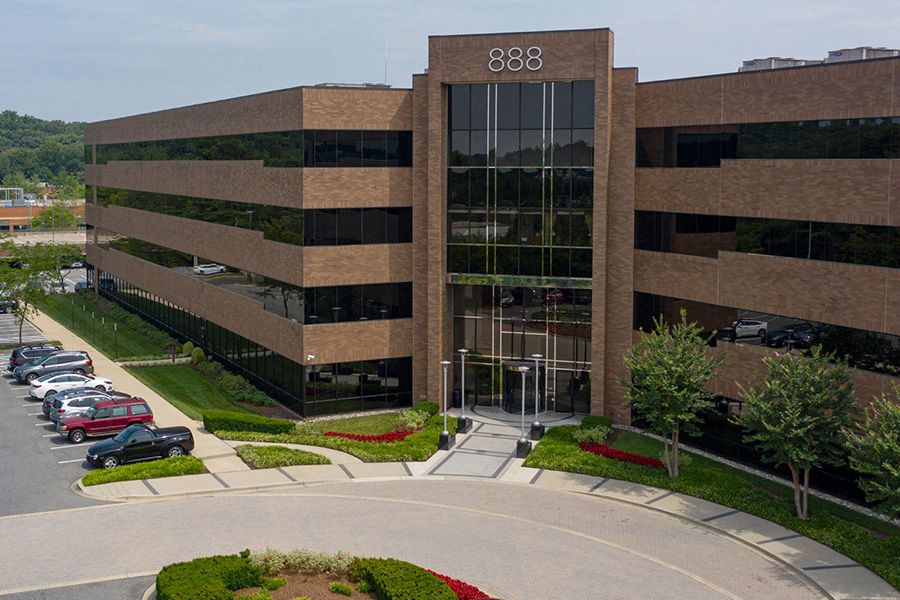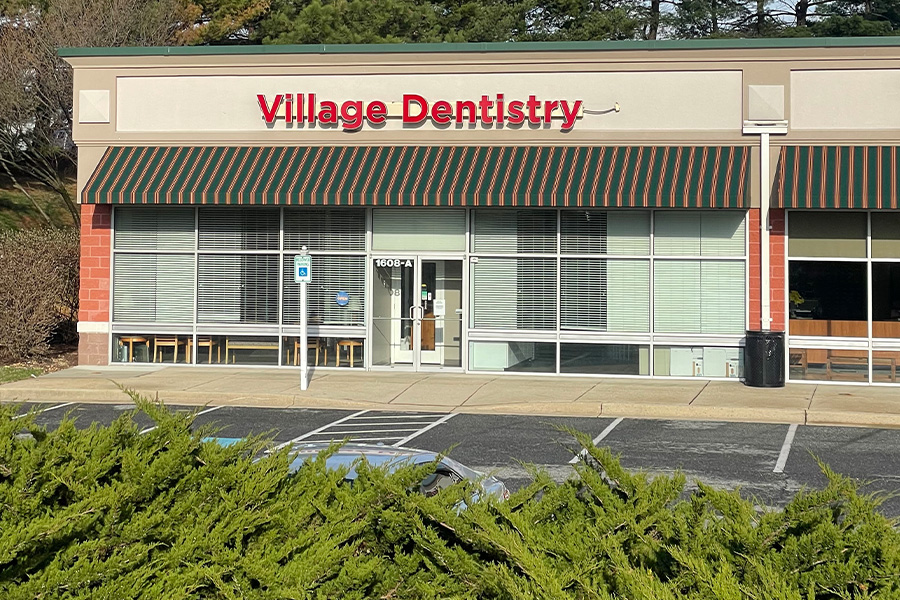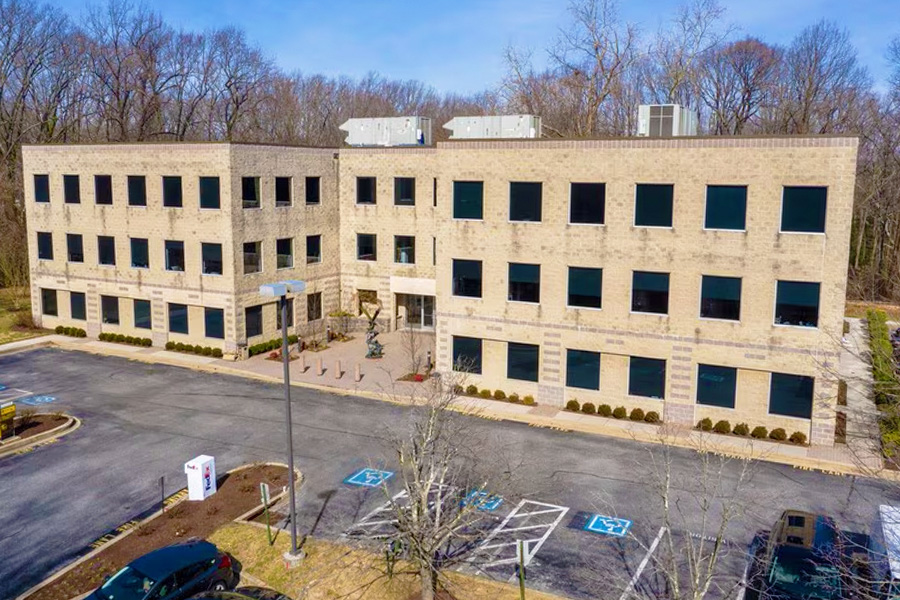Comprehensive Dental Implant Services
Reclaim Your Smile, Restore Your Confidence.
Missing one or more teeth can impact more than just your appearance. It affects the way you chew, the foods you can eat, and even the way your face looks over time. Bone loss begins almost immediately after a tooth is lost, causing changes in facial structure, premature aging, and a sunken appearance. Many people hesitate to smile, hold back in social situations, or feel self-conscious about their missing teeth.
If any of this sounds familiar, know that you are not alone.
According to epidemiological studies, 178 million Americans are missing at least one tooth, and about 40 million are missing all of their teeth. The problem worsens with age – 30 percent of adults between 65-74 years old have no natural teeth at all (Source).
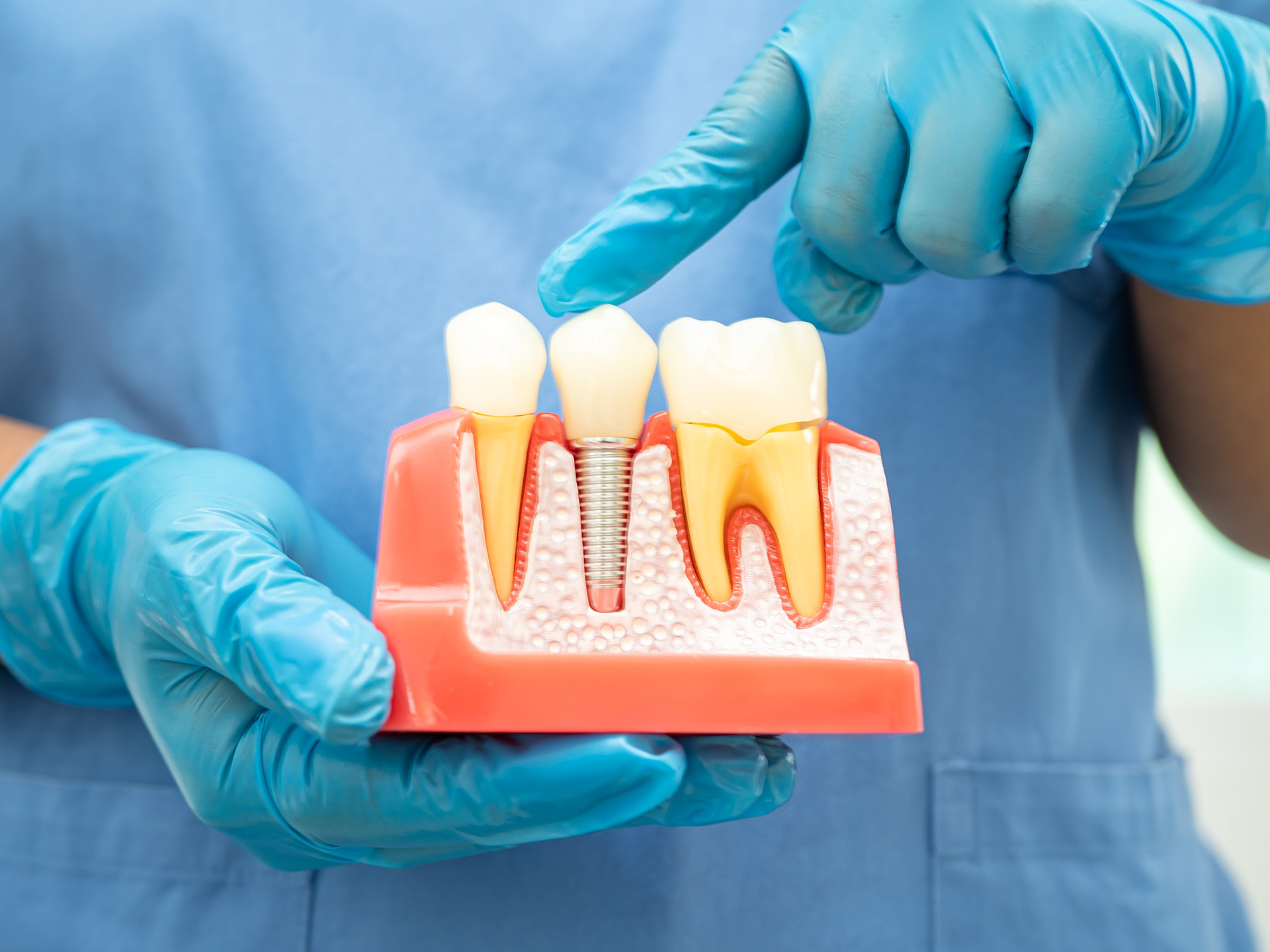
Tooth loss is common, but living without a confident smile doesn’t have to be. Today’s advancements in implant dentistry provide a long-term, natural-looking, and functional solution – allowing you to eat, speak, and smile with complete confidence.
What Are Your Options?
When faced with tooth loss, patients have several options:
The only solution that restores both form and function is dental implants.
What Are Dental Implants?
Think of a dental implant as the foundation of a new tooth. The implant itself is a titanium post placed into the jawbone, serving as a replacement for the tooth’s root. This allows the bone to remain strong and healthy, preventing facial collapse and maintaining a youthful appearance.
Once integrated, a custom-crafted crown, bridge, or a full arch of teeth is placed on top, completing the restoration. Unlike dentures or bridges, implants are permanent, secure, and function just like natural teeth. You can eat the foods you love, smile with confidence, and maintain optimal oral health – without worrying about shifting or discomfort.
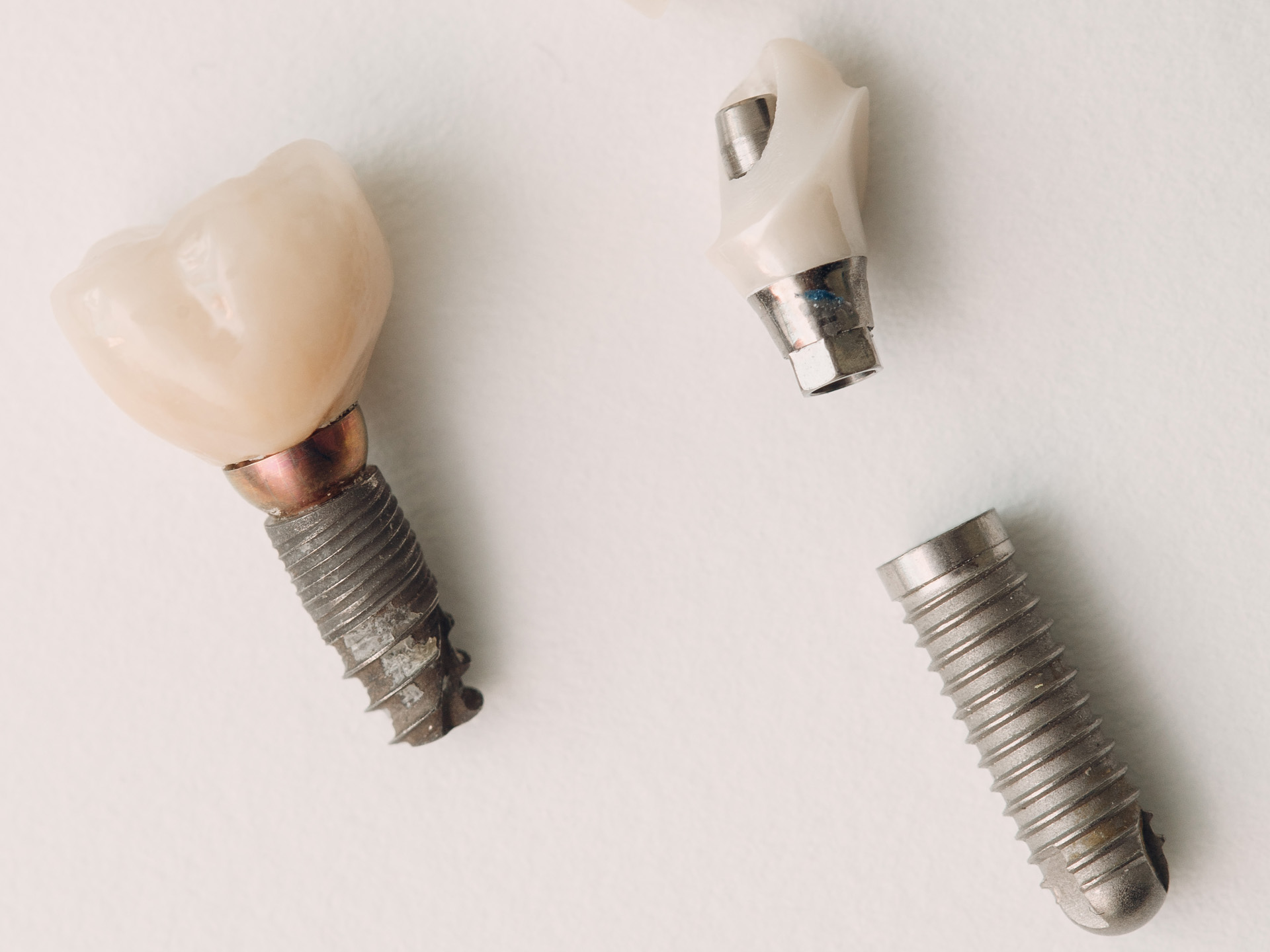
The Dental Implant Journey
Getting dental implants is a life-changing process, but it requires time, patience, and the right conditions for success. Not everyone is an ideal candidate, and even when everything is done correctly, the body may not always accept the implant. Our goal is to set you up for the best possible outcome by providing advanced techniques and meticulous planning.
Here’s what to expect:
This traditional approach takes time—but at BITE Dental Center, we use cutting-edge techniques to accelerate healing and improve results.
How We Improve the Implant Process
We don’t just follow the standard protocol—we enhance it using state-of-the-art technology and regenerative techniques, helping you heal faster and get back to living life sooner.
A New Smile, A New You
For many patients, needing multiple implants is not just about replacing missing teeth – it’s an opportunity to reset and build a healthier future. Tooth loss can be caused by medical conditions, lifestyle choices, or accidents – but the path forward is in your control.
Commitment to a Healthier, Brighter Future
Dental implants can last a lifetime, but they require a commitment to proper care and maintenance. Think of them as a second chance at a natural, functional smile – one that allows you to eat, speak, and live without restrictions.
By following a dedicated home care routine, using the right tools like a hydro-floss, and maintaining regular professional cleanings, you can protect your investment and enjoy a healthy, confident smile for decades to come.
Your At-Home Implant Care Routine
Professional Care: More Frequent Hygiene Visits for Long-Term Success
Unlike natural teeth, implants require a specialized cleaning protocol to prevent bacteria from accumulating around the implant surface.
This is a chance to not only restore your smile but also to embrace a new version of yourself. A version that can enjoy food without limitations, speak with confidence, and smile without hesitation.
